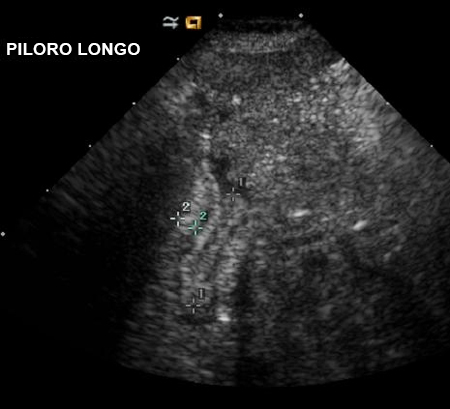Resumo
Definição
História e exame físico
Principais fatores diagnósticos
- menino primogênito
- vômitos não biliosos em jato
- 2 a 12 semanas de idade
- massa abdominal superior
- ondas peristálticas
Outros fatores diagnósticos
- história familiar de estenose pilórica
- várias alterações de fórmula
- taquicardia
- menor número de fraldas molhadas
- membranas mucosas ressecadas
- fontanelas planas ou deprimidas
- constipação
- baixo ganho de peso
- irritabilidade
Fatores de risco
- prematuridade
- exposição precoce à eritromicina
- exposição a prostaglandinas
- exposição materna a macrolídeos
- localização geográfica/origem étnica
- menino primogênito
- história familiar de estenose pilórica
Investigações diagnósticas
Primeiras investigações a serem solicitadas
- perfil bioquímico
- ultrassonografia do abdome
Algoritmo de tratamento
todos os pacientes
Colaboradores
Autores
Catherine J. Hunter, MD
Professor of Surgery and Division Chief of Pediatric Surgery
Oklahoma Children’s Hospital
The University of Oklahoma College of Medicine
Oklahoma City
OK
Declarações
CJH declares that she has no competing interests.
Agradecimentos
Dr Catherine Hunter would like to gratefully acknowledge Dr Samuel C. Klonoski, Dr Jeffrey S. Upperman, Dr Yigit S. Guner, and Dr Arturo Aranda, previous contributors to this topic. SCK, JSU, YSG, and AA declare that they have no competing interests.
Revisores
Evan Nadler, MD
Assistant Professor of Surgery
Department of Surgery
Division of Pediatric Surgery
NYU Medical Center
New York
NY
Declarações
EN declares that he has no competing interests.
Lewis Spitz, PhD FRCS MD (Hon), FRCPCH FAAP (Hon), FCS (SA) (Hon)
Emeritus Nuffield Professor of Paediatric Surgery
Institute of Child Health
University College
London
UK
Declarações
LS declares that he has no competing interests.
Ruth Hallows, BSc, MB BS, FRCS, FRCS III (Paediatric Surgery)
Consultant in Paediatric and Neonatal Surgery
Royal Alexandra Children's Hospital
Brighton
UK
Declarações
RH declares that she has no competing interests.
Créditos aos pareceristas
Os tópicos do BMJ Best Practice são constantemente atualizados, seguindo os desenvolvimentos das evidências e das diretrizes. Os pareceristas aqui listados revisaram o conteúdo pelo menos uma vez durante a história do tópico.
Declarações
As afiliações e declarações dos pareceristas referem--se ao momento da revisão.
Referências
Principais artigos
Aspelund G, Langer JC. Current management of hypertrophic pyloric stenosis. Semin Pediatr Surg. 2007 Feb;16(1):27-33. Resumo
Expert Panel on Pediatric Imaging., Alazraki AL, Rigsby CK, et al. ACR Appropriateness Criteria® Vomiting in infants. J Am Coll Radiol. 2020 Nov;17(11s):S505-S515.Texto completo Resumo
Staerkle RF, Lunger F, Fink L, et al. Open versus laparoscopic pyloromyotomy for pyloric stenosis. Cochrane Database Syst Rev. 2021 Mar 9;3:CD012827.Texto completo Resumo
Artigos de referência
Uma lista completa das fontes referenciadas neste tópico está disponível para os usuários com acesso total ao BMJ Best Practice.

Diagnósticos diferenciais
- Refluxo gastroesofágico
- Superalimentação
- Má rotação
Mais Diagnósticos diferenciaisDiretrizes
- ACR appropriateness criteria: vomiting in infants
Mais DiretrizesConectar-se ou assinar para acessar todo o BMJ Best Practice
O uso deste conteúdo está sujeito ao nosso aviso legal